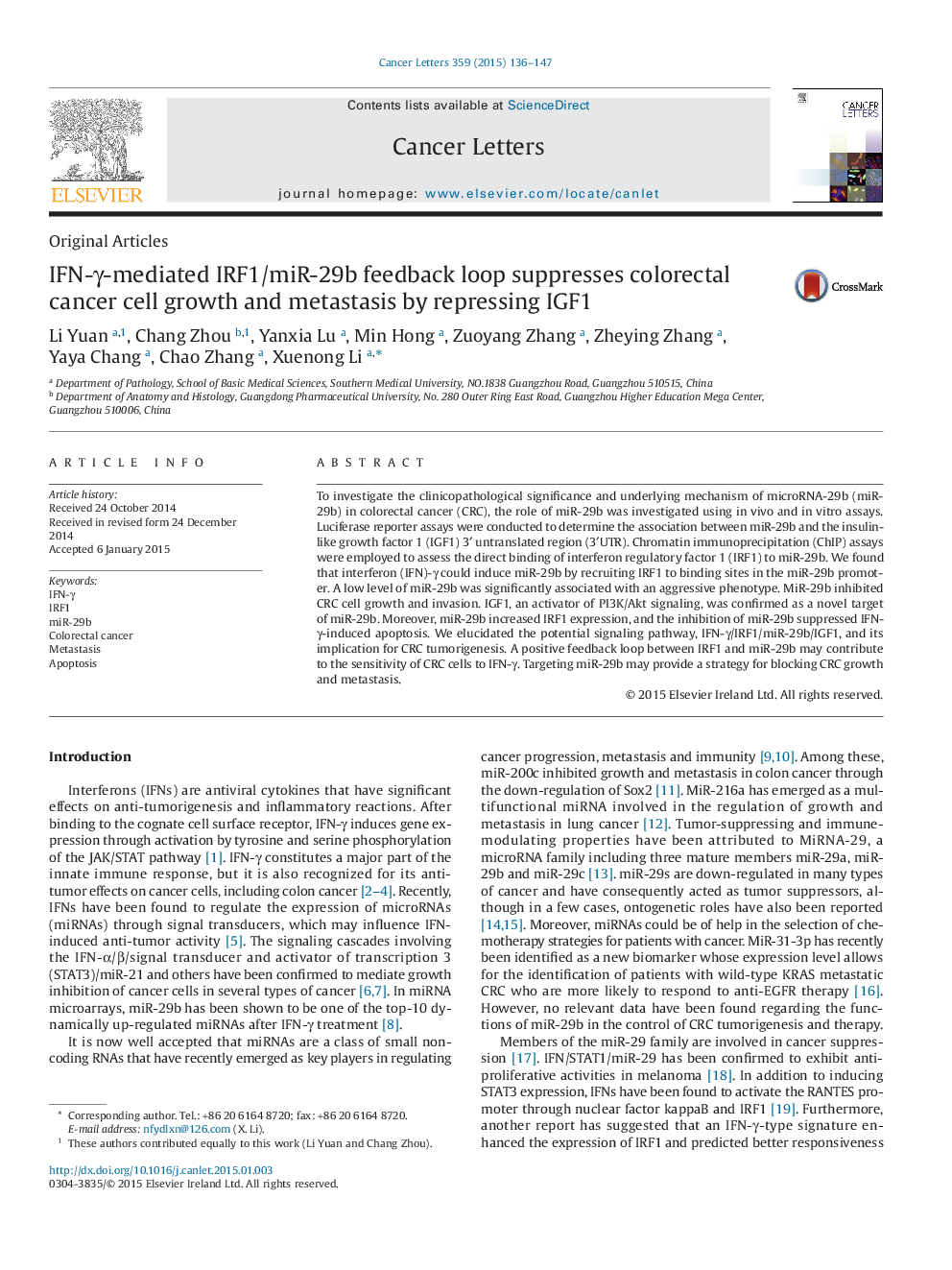| Article ID | Journal | Published Year | Pages | File Type |
|---|---|---|---|---|
| 10902376 | Cancer Letters | 2015 | 12 Pages |
Abstract
To investigate the clinicopathological significance and underlying mechanism of microRNA-29b (miR-29b) in colorectal cancer (CRC), the role of miR-29b was investigated using in vivo and in vitro assays. Luciferase reporter assays were conducted to determine the association between miR-29b and the insulin-like growth factor 1 (IGF1) 3â² untranslated region (3â²UTR). Chromatin immunoprecipitation (ChIP) assays were employed to assess the direct binding of interferon regulatory factor 1 (IRF1) to miR-29b. We found that interferon (IFN)-γ could induce miR-29b by recruiting IRF1 to binding sites in the miR-29b promoter. A low level of miR-29b was significantly associated with an aggressive phenotype. MiR-29b inhibited CRC cell growth and invasion. IGF1, an activator of PI3K/Akt signaling, was confirmed as a novel target of miR-29b. Moreover, miR-29b increased IRF1 expression, and the inhibition of miR-29b suppressed IFN-γ-induced apoptosis. We elucidated the potential signaling pathway, IFN-γ/IRF1/miR-29b/IGF1, and its implication for CRC tumorigenesis. A positive feedback loop between IRF1 and miR-29b may contribute to the sensitivity of CRC cells to IFN-γ. Targeting miR-29b may provide a strategy for blocking CRC growth and metastasis.
Related Topics
Life Sciences
Biochemistry, Genetics and Molecular Biology
Cancer Research
Authors
Li Yuan, Chang Zhou, Yanxia Lu, Min Hong, Zuoyang Zhang, Zheying Zhang, Yaya Chang, Chao Zhang, Xuenong Li,
